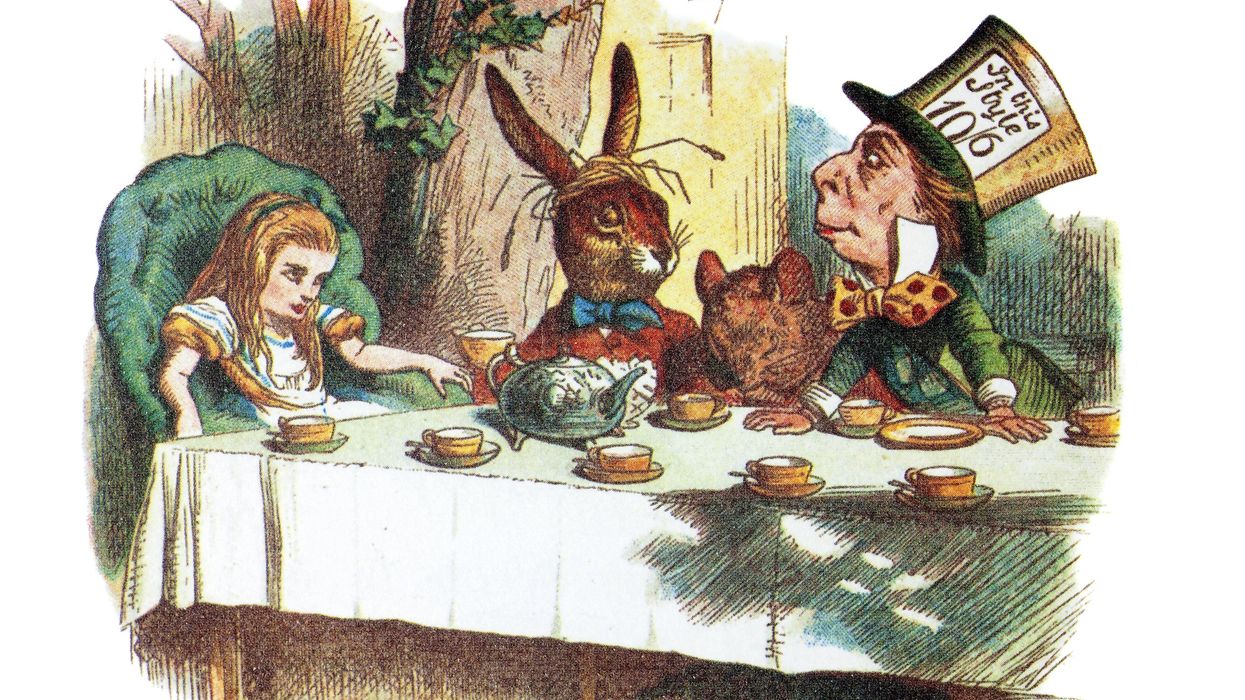Lockard is an Iowa resident who regularly contributes to regional newspapers and periodicals. She is working on the second of a four-book fictional series based on Jane Austen’s “Pride and Prejudice."
“Curiouser and curiouser,” Alice cried after falling down the rabbit hole in Lewis Carroll’s “Alice’s Adventures in Wonderland.”
In nearly every arena of our lives we might observe the same, from our changing climate and increasingly high-stakes global conflicts, to space travel, energy conservation and the accelerating use of artificial intelligence. And, of course, in our volatile politics. Things are indeed getting curiouser.
Each of our branches of government frequently inhabits an improbable “wonderland.” In the executive branch’s presidential race, we heard: “Christians, get out and vote, just this time. You won’t have to do it anymore. Four more years, you know what, it will be fixed, it will be fine, you won’t have to vote anymore, my beautiful Christians.”
What?!
Like the White Rabbit in Alice’s Wonderland, is the Republican candidate scurrying off to his terribly important date? Win, or an insurrection? Has someone stolen the Red Queen’s tarts, or the previous election? No, it’s Wonderland.
In Wonderland’s Caucus Race, “They began running when they liked, and left when they liked, so that it was not easy to know when the race was over.” Sounds much like the Democratic Party’s election process, which we thought happened during the primaries. Apparently not.
And participants in the Queen’s croquet game have nothing on our Congress. “They all played at once, without waiting for turns, quarreling all the while” is a lot like our legislative branch. Lawmakers often even use the Red Queen’s method to win the day: “sentence first, verdict afterwards!”
What about our third, unelected, judicial branch? Again, who stole the tarts? But it was ruled that no tarts were stolen; there are just different rules for those who make the rules. The Red Queen’s “off with their heads” is too harsh, but not reporting lavish gifts and vacations should have some consequences.
Wonderland’s Mock Turtle could be talking about our political campaigns and their “different branches: Ambition, Distraction, Uglification and Derision.” Ambitious politicians spouting ugly rhetorical derisions pretty much describes what we see and hear from every media outlet every day this election season.
Although we may want to hide our heads in a hole, we cannot. And we cannot escape, tumbling down a rabbit hole as Alice did. What then?
Attend the Mad Hatter’s Tea Party and imitate the Dormouse, falling asleep with our heads in our teacups? No time for that. Or perhaps the Caterpillar had the right idea? Take all the pundits, roll them together and smoke them to escape reality. For many reasons, it is a bad idea.
“I wish I hadn’t cried so much,” Alice said, swimming in a pool of her own tears. She is right. There is far too much at stake for useless tears.
The best advice: Do not drink any potions marked “Drink Me,” as the concoction makes us too big or too small. We cannot afford to get too big to listen to others’ viewpoints, or become small enough to drown in our own pool of despair. Be skeptical, but hopeful.
“But I don’t want to go among mad people,” Alice tells the Cheshire Cat. “Oh, you can’t help that,” he replies. “We’re all mad here. I’m mad. You’re mad. You must be or you wouldn’t have come here.”
Probably true. And here we are. But we have always been here, always brooked controversy and disagreement, arguing and posturing. This adventure is nothing new for us.
Carroll wrote “Alice’s Adventures in Wonderland” in Oxford, England, in 1865. The same year, our country was coming to the end of a devastating Civil War and our 16th, and arguably greatest president, was assassinated. Yet, here we are today, holding an election for our 47th.
When Alice’s sister hears her tales from Wonderland, she reminds Alice it was all a dream.
So, too, is democracy a dream. One which for 248 years has withstood all kinds of inanity, difficulties, wars, etc., yet continues to exist on the solid ground of the real world.
The dream lives on. Crafted into reality by the foresight of our founders, instilled with checks and balances, a living, changing entity of individual states, united. Stronger for our diversity, more stable with our open venues for discussion and argument, and, despite our differences and strife, still thriving, Wonderland in its wonder.
And still the greatest country the world has ever seen.




















Trump & Hegseth gave Mark Kelly a huge 2028 gift